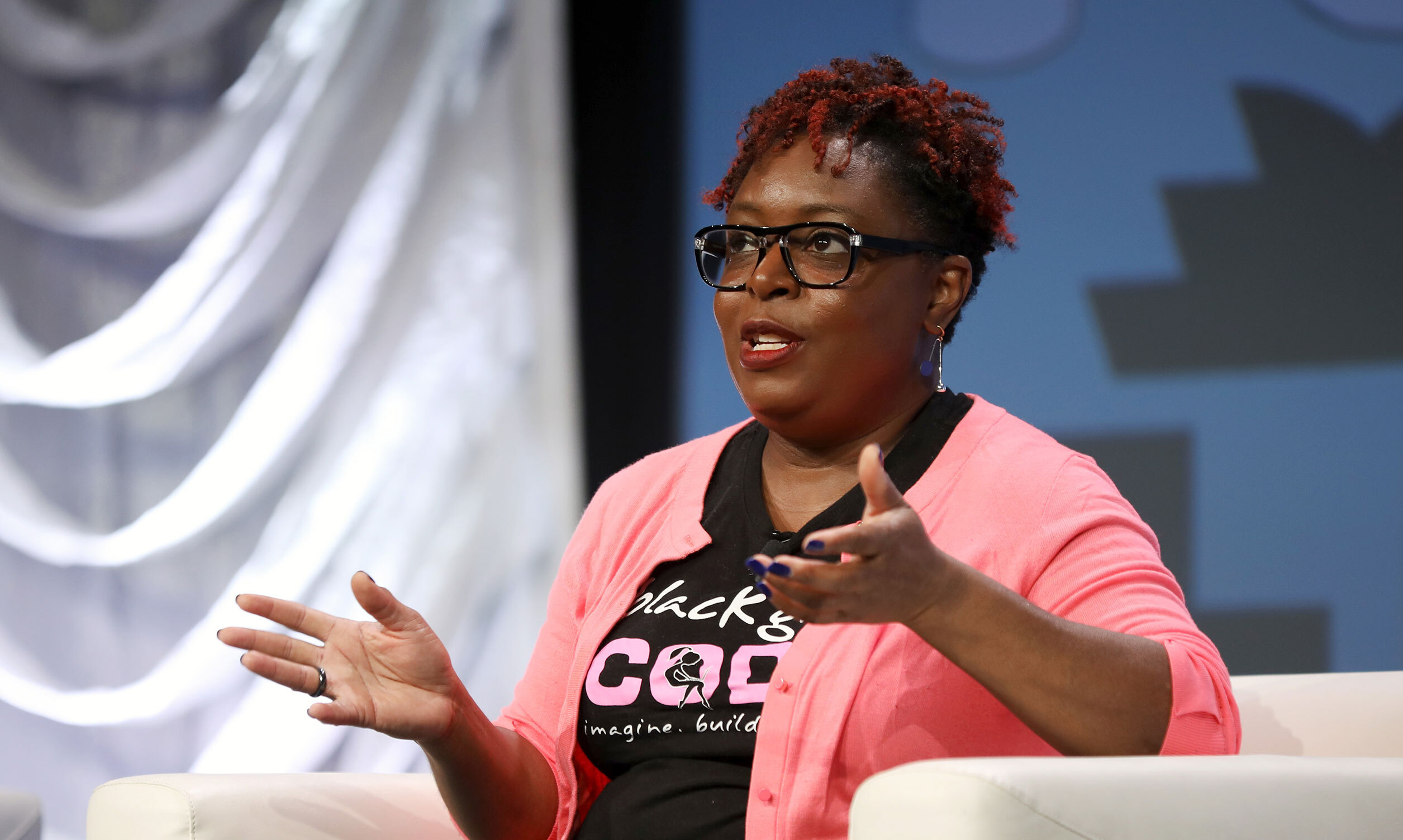Welcome to Startups Weekly, a fresh human-first take on this week’s startup news and trends. To get this in your inbox, subscribe here.
In April 2020, NextView VC launched its debut accelerator in the thick of the pandemic, while historical incubators like Y Combinator and 500 Startups were similarly rethinking their independent strategies. Key tweaks like making batches fully remote and scrapping the cohort model gave us a peek at how some of the most active pre-seed and seed investors were rethinking their jobs.
Fast-forward perhaps too many months, NextView partner Melody Koh tells me the accelerator is launching its third cohort with some key tweaks, again signaling some interesting changes for the seed-stage startup scene.
The first big change is that NextView is growing its check size from $200,000 for an 8% ownership stake to $400,000 for a 10% ownership stake. Big check sizes in this economy are anything but surprising, but Koh’s perspective is that the cash will “arm companies with just a little bit more ammunition that can really set them up.” Beyond market pressure, the firm realized they were the only funding sources for a lot of cohort startups — which meant they had to make larger initial investments to truly get these companies to follow on funding.
“It just provides a little bit more flexibility and the ability for teams to really experiment and execute and kind of get to the next stage of the milestones that this market now is looking for,” she added. So far, more than 50% of the NextView accelerator alumni identify as underrepresented founders and come from cities including Miami, Seattle, Boston, Birmingham, San Diego and New York.
Considering its distributed format, the firm has had to update its mentorship. This time around, it is pairing each of its six to eight batch startups with a primary partner for weekly meetings and a secondary for monthly meetings. The former will give the company a more on-going resource while they’re in the weeds and is a result of feedback NextView has seen from previous cohorts. The more involved partnership model could bring startup founders more activation energy when they need it most.
And finally, the firm is doubling down on its no demo day rule. Part of the argument here is that the idea of an annual, flashy event may no longer be necessary for founders to land coveted attention.
“We don’t feel like the artificial kind of deadlines, and the demo day date format is the best use of your time,” Koh said. “The way we engage with every company is … ‘OK each of you has a different set of milestones that make sense for you,’ so we don’t really focus on demo day as the right way to expend their energy or our energy.”
NextView isn’t alone in rethinking demo days and its broader investing strategy. Firms like Contrary Capital and startups like Launch House are similarly looking for smarter ways to land deals and propel startups.
Even in a world where capital is a commodity, investors are preparing — perhaps even more so — to find innovative ways to make their cash even more worth it to founders. “Value add” chatter can be cringey at times, but to me it just signals that an emerging class of investors are figuring out what they’re best at (beyond spotting ambitious founders). That’s fun to see, and even something as small as a tweak on accelerator format can give us something to think about.
For my full take on this topic, check out my TechCrunch+ column: Startup accelerators’ definition of ‘value add’ is due for a refresh.
In the rest of this newsletter, we’ll dig into CES 2022 trends, a fintech startup with a contrarian view on CAC and a feature on the future of Black Girls Code. As always, you can follow my thoughts on Twitter @nmasc_ or listen to me and my friends on Equity.
Light bulbs with vital signs and suave yet smart cat collars

Image Credits: TechCrunch
From smart cat collars to color-changing cars, CES never fails to surprise us. While the TechCrunch team chose to cover the annual tech conference remotely due to surging COVID-19 cases, our reporters were all over the latest and greatest technology sneak peeks nonetheless. All of our CES coverage can be found at this nifty link, but I recommend starting with Brian Heater’s CES 2022 themes just to wet your palate.
Here’s what to know: Stand out announcements so far include BMW’s plan to turn cars into rolling cinemas, a mission to scale paper-based tooth brushes and, on a more serious note, a statement on the importance of a cushion that tracks your child’s temperature.
Other “wait, what” moments include:
- This lightbulb can monitor your vital signs
- As CES goes hybrid, connected fitness companies have another big year
- TikTok taps Atmosphere to bring TikTok videos to out of home screens in commercial venues for the first time
- Stellantis to transform Chrysler into an all-electric brand by 2028
- LiLz uses computer vision to read gauges and dials where humans prefer not to tread
And the startup of the week is…

Image Credits: Peshkova (opens in a new window) / Getty Images
Bankaya! As our own Mary Ann Azevedo reports, this Mexican fintech is opting for a non-traditional strategy when it comes to acquiring customers: going offline. The new, early-stage company is targeting 50 million underbanked individuals with face-to-face advertising: think street sales and debit card kiosks strategically placed in vaccination centers.
Here’s what to know: Just one year after launch, Bankaya co-founders CEO Mauricio Cordero, Ramón Chedraui and Diego Vargas claim they landed 450,000 customers. And, adding to their counterintuitive strategy, the company is fully bootstrapped to date.
Honorable mentions:
- Alto raises $40 million to help individuals make tax-savvy investments in assets like crypto and artwork
- NFT kingpin OpenSea lands monster $13.3B valuation in new raise
- Meet Bob, a cute little dishwasher that saves water and zaps bacteria
- Liquid Death lands $75M more to expand the brand
- Petal nears unicorn status with fresh $140M in capital to upend ‘broken’ traditional credit system
- Not every creator economy startup is built for creators
- 3 views: Pay attention to these startup theses in 2022
Kimberly Bryant and the future of Black Girls Code

Image Credits: Sean Mathis / Getty Images
Over the holidays, news broke that Black Girls Code co-founder and CEO Kimberly Bryant was “suspended indefinitely” from the nonprofit organization she launched nearly a decade ago. I spoke to the nonprofit board that decided to place her on leave, former employees who allege rising tensions between Bryant and the organization, and of course, Bryant herself to get the full story.
Here’s what to know: There’s too much nuance in this story to sum it all up in a perfect blurb, so I’d really recommend those interested to read the entire story. As of now, the board claims it has formed a special committee to review complaints against Bryant from former and current employees and put Bryant on paid administrative leave last week “to ensure a full and fair review process.”
Startup boards 101:
- What you need to know about startup boards
- 5 must-have board slides for SaaS sales and revenue leaders
- More LP transparency is overdue
Around TechCrunch
Our events calendar got leaked (by us) so now’s your chance to check out our legendary line up for this year. I’m so excited to share that TechCrunch Disrupt, our flagship event, will be returning as an in-person event. Three days, a lot of startup chatter, and over-caffeination. Buy tickets ASAP
Across the week
Seen on TechCrunch
Elizabeth Holmes convicted of 4 of 11 fraud counts in Theranos trial
Fintech-focused Ribbit Capital raises $1.15B in seventh fund, according to SEC filing
MVP versus EVP: Is it time to introduce ethics into the agile startup model?
The Equity team’s 2022 predictions
Memes, money and madness: 2021 in tech
Seen on TechCrunch+
3 views: How due diligence will change in 2022
VCs and founders are max bullish as public markets flash warning signs
How to be one of the ‘haves’ of SaaS
Sectors where New Zealand startups are poised to win
What are the ‘jobs to be done’ of an investment manager?
Ah, friends, it is good to be back,















 English (US) ·
English (US) ·